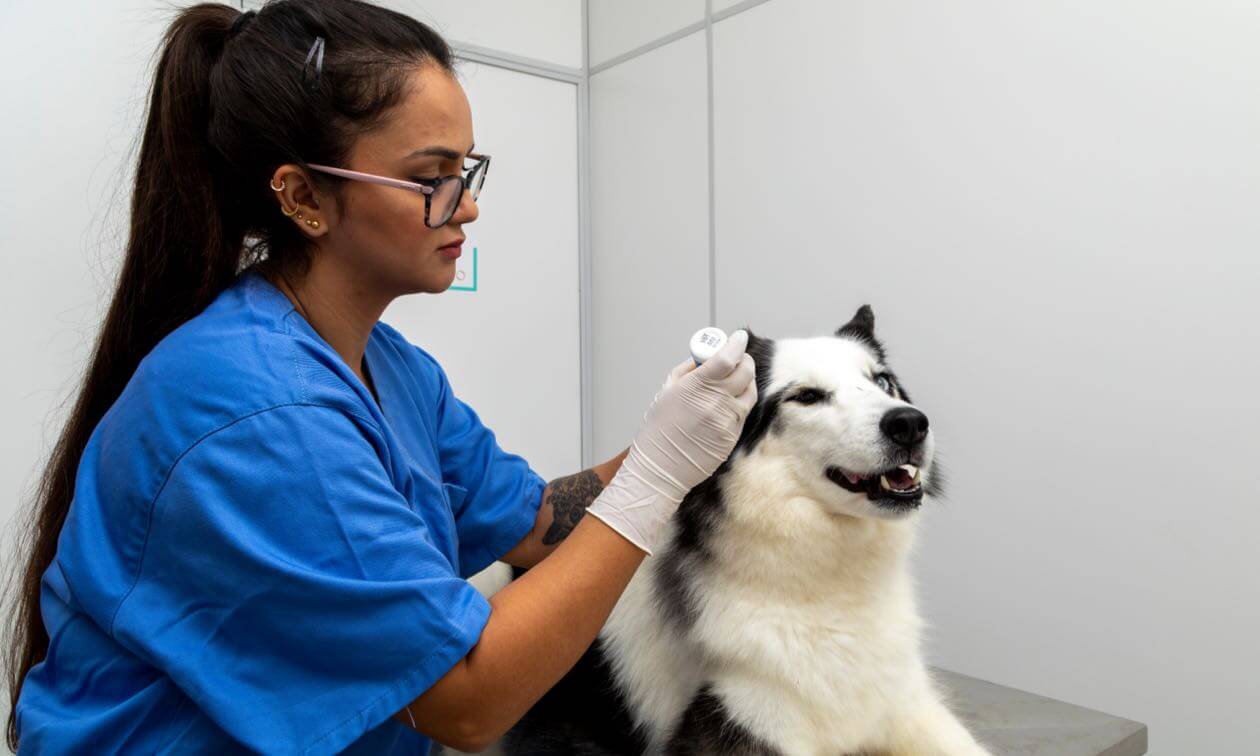Specialist Tips for Pet Nourishment From a Vet
Recognizing the dietary needs of family pets is critical for their total health and durability. Veterinarians recommend a balanced diet regimen that accommodates individual elements such as activity, age, and type level. With the multitude of animal food choices available, pet owners typically find themselves browsing a landscape rife with false information and misconceptions. As we discover crucial suggestions from vet specialists, it comes to be obvious that appropriate nutrition is not merely about what is fed but entails a much deeper understanding of each family pet's special demands. What crucial insights could transform your approach to family pet nutrition?
Recognizing Nutritional Requirements
Comprehending the dietary requirements of family pets is fundamental to guaranteeing their overall wellness and wellness. Similar to humans, family pets call for a balanced diet plan that offers necessary nutrients, including proteins, fats, carbs, minerals, and vitamins. These nutrients play critical functions in different bodily functions, such as energy production, immune response, and tissue repair.
They are composed of amino acids, some of which are crucial and have to be obtained from food. Carbs serve as a key energy resource and can sustain digestive system wellness when they include fiber.
Minerals and vitamins are required for metabolic processes and preserving overall health. Each pet might have one-of-a-kind requirements based upon variables such as age, breed, activity level, and health and wellness status. It is vital to talk to a veterinarian to identify the specific nutritional needs customized to your pet's private requirements, guaranteeing they receive optimal nutrition throughout their life phases. Correct understanding and attention to these dietary elements can significantly add to a pet's longevity and lifestyle.

Selecting the Right Food
Choosing the proper food for animals is an important aspect of meeting their nutritional requirements. It is important to take into consideration elements such as age, dimension, health, and type condition when picking a pet dog food. Kitties and pups require formulations that sustain development and growth, while adult animals need well balanced diet regimens that maintain their health and wellness. Elderly animals might gain from foods developed to attend to age-related problems, such as joint health and wellness or weight management.
When evaluating animal food choices, look for products that satisfy the Organization of American Feed Control Officials (AAFCO) standards, which make certain that the food offers balanced and complete nourishment. Components should be high-quality, with actual meat as the primary resource of healthy protein. Prevent foods with extreme fillers, fabricated ingredients, or byproducts, as these can take away from the overall nutritional worth.
Consulting with a veterinarian can provide customized referrals based on your animal's details needs. Furthermore, transitioning between foods should be done slowly to prevent gastrointestinal distress. By taking these actions, pet dog proprietors can ensure that they are offering their hairy buddies with the finest feasible nourishment for a healthy and balanced and happy life.
Common Misconceptions Concerning Animal Food
Unmasking mistaken beliefs bordering pet food is important for guaranteeing optimal nourishment for our furry companions. One common myth is that all grain-free diets transcend for pets. Actually, grains can give crucial nutrients and are not inherently damaging. A well balanced diet can include grains, supplied they are not causing any intolerances or allergies.

Furthermore, several pet dog proprietors think that "premium" or "all-natural" labels ensure greater quality. Nevertheless, these terms are typically unregulated and do not necessarily indicate premium nutritional worth. It is vital to scrutinize active ingredient listings and nutritional profiles rather.
Special Considerations for Various Breeds
When it comes to pet nutrition, unique considerations have to be taken into account for different breeds, as each type can have unique dietary demands and sensitivities. Big breeds such as Terrific Danes and Saint Bernards are prone to musculoskeletal issues and might benefit from diet regimens developed to sustain joint health and wellness, often featuring ingredients like glucosamine and omega fatty acids. On the other hand, small breeds like Chihuahuas may call for higher calorie thickness to meet their power levels, necessitating solutions that are rich in nutrients however lower in mass.
Furthermore, specific breeds might be inclined to particular health issues, such as food allergies or level of sensitivities. Types like Labrador Retrievers might have problem with excessive weight, check over here requiring careful section control and a well balanced diet to preserve a healthy weight. On the various other hand, breeds such as Dachshunds might be much more vulnerable to spine issues, prompting a requirement for diets that advertise back wellness and weight administration.
Inevitably, recognizing these breed-specific nutritional needs is essential for pet dog owners. Consulting with a veterinarian can aid in picking one of the most appropriate diet customized to a specific pet dog's type, age, and health condition, ensuring optimal nourishment and wellness.
Importance of Normal Veterinary Check-Ups
Comprehending the one-of-a-kind nutritional needs of various breeds is just one facet of liable pet ownership; normal vet exams play a crucial role in preserving general health and wellness. These check-ups are vital for early discovery of health and wellness concerns, making sure that any kind of potential troubles are dealt with prior to they end up being major. Regular sees permit veterinarians to check your pet dog's weight, dental health, and essential indicators, which are crucial signs of overall wellness.
Additionally, routine check-ups make it possible for vets to supply customized dietary guidance based upon your animal's individual health and wellness standing - Animal Hospital Greensburg. As animals age, their nutritional needs might transform, and modifications may be required to avoid weight problems or nutrient deficiencies. Preventive treatment, consisting of inoculations and parasite control, is also a fundamental part of these gos to, guarding your pet dog from numerous diseases
In enhancement to physical exams, these visits offer a superb opportunity for animal proprietors to go over behavior changes or problems regarding their animal's eating practices. By prioritizing routine veterinary examinations, family pet proprietors can make sure a longer, healthier life for their hairy companions, eventually boosting their high quality of life.
Conclusion
In conclusion, making certain optimum pet nourishment requires a detailed understanding of individual nutritional demands, proper food selection, and awareness of prevalent myths. Special considerations for numerous breeds have to be made up, and routine vet check-ups play a vital duty in monitoring wellness and dietary adjustments. Sticking to AAFCO standards and speaking with description veterinarians prior to making dietary changes will certainly enhance the well-being of pets, inevitably adding to their durability and lifestyle.
With the multitude of family pet food alternatives offered, pet owners often discover themselves navigating a landscape rife with misinformation and misconceptions. Each animal might have one-of-a-kind demands based on aspects such as age, type, task degree, and health and wellness standing. It is necessary to think about factors such as age, size, health, and breed status when choosing a pet food. Senior pet dogs might profit from foods designed to attend to age-related problems, such as joint health or weight administration.
Recognizing the distinct nutritional requirements of various site types is just one element of liable family pet ownership; routine veterinary check-ups play an essential function in preserving overall wellness.